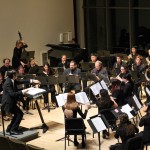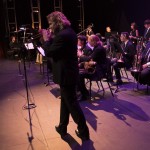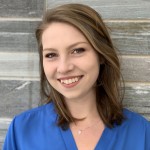Andrew Hauze, director of the Swarthmore College Wind Ensemble, is excited for audience members to hear the ensemble’s energy and heart in their upcoming performance. The spring semester Wind Ensemble Concert will be held on April 13th, at 8:00 PM in Lang Concert Hall. Over the course of the fifty-minute program, audience members will experience a huge range of musical styles and cultures.
This semester, the Wind Ensemble will be playing Alfred Reed’s epic Armenian Dances, a new arrangement of a piano piece by Clara Schumann called Romanze, and Michael Gandolfi’s Vientos y Tangos. During the planning process for the upcoming concert, Hauze recognized that several students of the ensemble expressed an interest in playing some longer works, which led to Hauze’s decision to program Armenian Dances, a suite in four movements. “I’ve long wanted to program Alfred Reed’s multi-movement Armenian Dances, a work that incorporates many traditional tunes from Armenia into quite a symphonic texture, so this seemed like the perfect opportunity,” Hauze said. “I’ve also been meaning to program Michael Gandolfi’s Vientos y Tangos, a contemporary take on the tango, for quite some time, and it seemed like a nice counterbalance to the Armenian Dances.”
Kevin Medansky ‘19 of Haverford College is participating in this semester’s concert and he has experience playing Armenian Dances. “I had actually played Reed’sArmenian Dances on contrabassoon, and playing that part was so much easier compared to this time around!” Medansky said. “I expected this trombone part to be a breeze, but I’ve had to work so hard to get all the notes right.”
Medansky has been a member of the Swarthmore Wind Ensemble since the beginning of his sophomore year, playing the trombone. However, Medansky’s background in music goes all the way back to fourth grade, when he first began playing the trombone. For Medansky, Wind Ensemble is like a family and he is delighted to have another opportunity to perform onstage with the rest of the group. “Ultimately, I joined the Wind Ensemble because I love the music that goes into concert bands, and I wanted to join a community that had always been so impactful for me since I started trombone,” Medansky said. “I absolutely adore the community and I’ve gotten to know so many more people in the other sections, even though we’re not sitting next to each other in rehearsal, which feels really nice.”
This upcoming concert will feature work from an artist that the Ensemble has not performed before: Clara Schumann’s Romanze. “Professor Tom Whitman was interested in arranging Clara Schumann’s Romanze for our group, which I was thrilled to have him do, and it makes a nice contrast with an otherwise quite modern program (the other works were all written in the last 50 years),” Hauze said.
Medansky echoes Hauze’s excitement saying, “I really hope that people fall in love with Schumann’s Romanze just like I have. It’s such a beautiful piece, and it’s so different from what we normally listen to. With those three final chords, one achingly leaning toward the next, there is nothing I love more in our repertoire right now.”
The Wind Ensemble has been practicing three hours each week to prepare for this upcoming concert, and they are ready showcase all of their hard work. Join them on April 13th at 8:00 PM as they take their listeners on an emotional journey through their music.
David Chan ’19
















